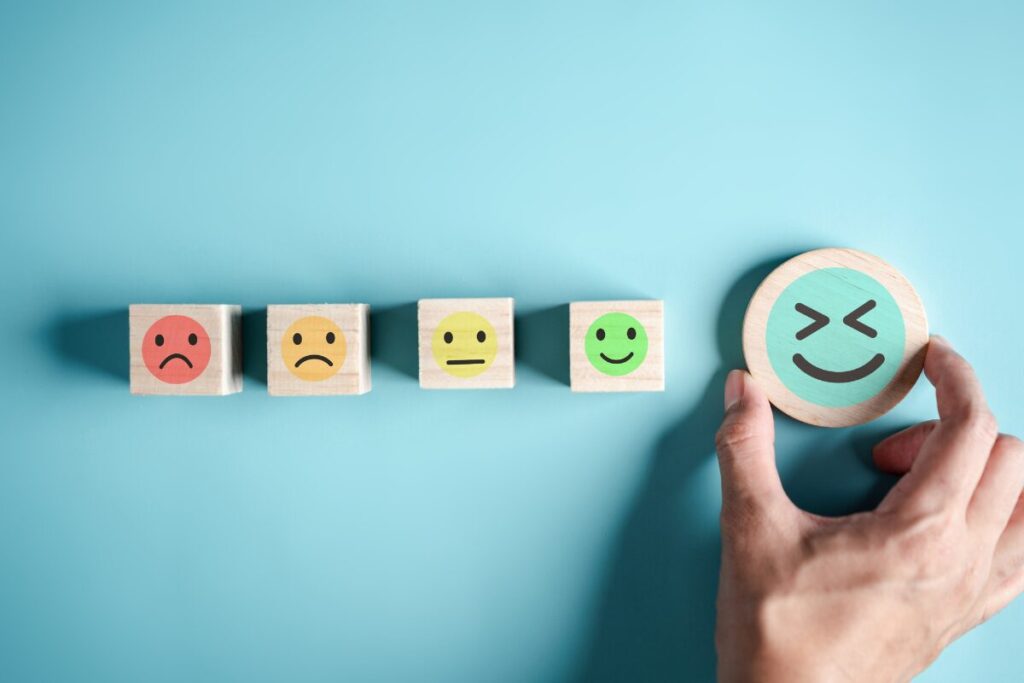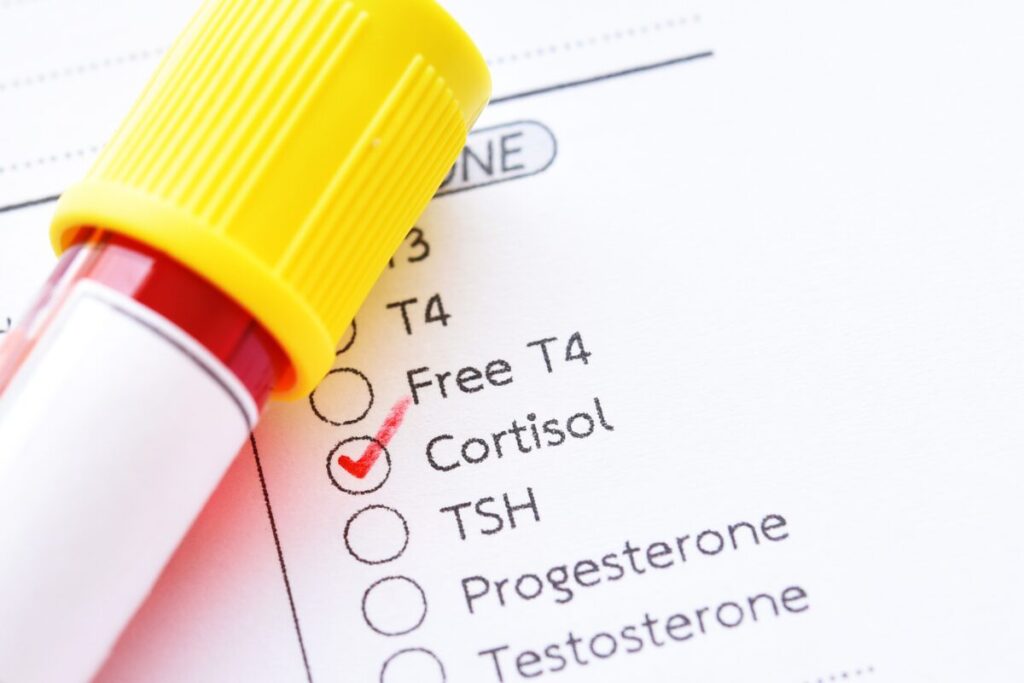Have you ever thought, “I just don’t feel like myself anymore”—but your doctor says everything looks “normal”?
Hormones play a massive role in how we think, feel, sleep, eat, focus, and function. When they’re off, we know it. But what most women don’t realize is that hormonal imbalances can begin years before menopause, and symptoms are often dismissed as “aging,” “stress,” or “just being a woman.”

Here’s the truth: you’re not crazy, lazy, or making it up. Your body is giving you clues—and it’s time we start listening.
Signs Your Hormones May Be Out of Balance
Hormonal imbalance doesn’t always show up as hot flashes or missed periods. Often, the signs are subtle—and easy to ignore—until they start interfering with your daily life. Some of the most common symptoms we see include:
- Fatigue (especially in the afternoon or early evening)
- Trouble falling or staying asleep
- Anxiety, mood swings, or irritability
- Brain fog and trouble concentrating
- PMS or heavy/irregular periods
- Weight gain or inability to lose weight (especially around the midsection)
- Low libido
- Hair thinning or dry skin
- Cravings for sugar, carbs, or salt
- Feeling “off” but not sure why
If that sounds familiar, you’re not alone—and you’re not imagining it.

Why Your Labs Might Look “Normal”
Conventional lab work often misses the bigger picture. As Dr. Sara Gottfried says, “You can’t treat what you don’t test—and you can’t trust a test that’s incomplete.”
Many women are told “you’re fine” because their labs fall within the standard reference range. But those ranges are based on population averages—not optimal function. A TSH of 4.2 may technically be “normal,” but it could still be a red flag that your thyroid is underperforming.
Often, traditional lab panels are too limited—they may include TSH, but not Free T3, Free T4, or antibodies. And timing matters too: estrogen and progesterone fluctuate during your cycle, and testing at the wrong time can lead to misleading results.
Understanding Hormones: What They Actually Do
Your hormones are chemical messengers that direct nearly every system in your body—including mood, metabolism, energy, immune function, sleep, digestion, and fertility.
Estrogen plays a critical role in reproductive health, but also supports brain function, bones, skin, and cardiovascular health. In balance, it helps you feel sharp, vibrant, and emotionally steady. Too much or too little—especially during perimenopause—can lead to mood swings, weight gain, cycle irregularity, and increased anxiety.
Progesterone is your calming, grounding hormone. It supports deep sleep, reduces anxiety, and balances estrogen. Under chronic stress, progesterone is often depleted first—leading to restlessness, PMS, insomnia, and feeling emotionally unsteady.
Cortisol, your main stress hormone, helps you wake up, manage pressure, and control inflammation. But when cortisol is constantly high—or completely drained—it disrupts your entire hormonal network, contributing to fatigue, sleep issues, weight gain, and mood instability.

Insulin regulates blood sugar by moving glucose into cells for energy. Frequent insulin spikes from stress, poor sleep, or high-sugar foods can cause blood sugar crashes, cravings, belly fat, and eventually insulin resistance—a major player in hormonal imbalance.
Thyroid hormones, particularly T3 and T4, influence your metabolism, temperature regulation, energy, and brain clarity. If thyroid function is off, you might feel sluggish, foggy, cold, or gain weight despite healthy habits. When overactive, it can cause anxiety, palpitations, and insomnia.
Each hormone plays its part—but they never act alone. When one is imbalanced, it often creates a ripple effect. That’s why we look at the full hormonal picture.
How to Functionally Support Hormone Balance
Balancing your hormones naturally isn’t about taking a supplement and hoping for the best—it’s about rebuilding the foundations your body needs to regulate itself.
At Wholesome Health, here’s what we focus on:
- Blood sugar regulation — Stable blood sugar keeps insulin, cortisol, and even estrogen in check.
“The foundation of hormone balance is blood sugar regulation. If you’re crashing by 3pm, your hormones are paying the price.” — Dr. Mariza Snyder
- Stress and cortisol management — Through breathwork, nervous system support, boundaries, and restorative routines, we help calm the HPA axis (your brain–adrenal connection).
- Liver and gut support — These systems are key for hormone detoxification and elimination. If they’re sluggish or overwhelmed, excess estrogen and toxins can build up.
- Movement — We encourage gentle strength training, walking, and cycle-synced exercise to support metabolism and hormone production without added stress.
- Sleep hygiene — Deep, restorative sleep is when your body resets cortisol and regulates melatonin, insulin, and reproductive hormones.
Every person’s plan looks different. That’s why we personalize everything—starting with the right testing, education, and support designed for you.
Prevention Is the Best Medicine
You don’t have to wait for a diagnosis to take action. You don’t have to accept feeling tired, anxious, moody, or out of control as your new normal. And you don’t have to figure it out alone. Hormones rule your body—and whether they’re in or out of balance, everything else tends to follow. At Wholesome Health, we specialize in helping women uncover the root causes of hormone imbalances and guide them back to energy, clarity, confidence, and calm.
👉 Explore our Hormone Services
👉 Book your free 30-minute discovery call to get started today.

References
- Gottfried, Sara. The Hormone Cure: Reclaim Balance, Sleep, Sex Drive and Vitality Naturally with The Gottfried Protocol. Scribner, 2013.
- Snyder, Mariza. The Essential Oils Hormone Solution: Reset Your Hormones in 14 Days with the Power of Essential Oils. Rodale Books, 2019.
- Cleveland Clinic. “Hormonal Imbalance.”
https://my.clevelandclinic.org/health/diseases/22263-hormonal-imbalance - Harvard Health Publishing. “Understanding the Stress Response.”
https://www.health.harvard.edu/staying-healthy/understanding-the-stress-response - Sleep Foundation. “How Sleep Affects Hormones.”
https://www.sleepfoundation.org/hormones/how-sleep-affects-hormones - American Thyroid Association. “Thyroid Function Tests.”
https://www.thyroid.org/thyroid-function-tests/ - UCLA Health. “The Gut-Brain Connection.”
https://www.uclahealth.org/news/gut-brain-connection - PubMed (NIH). “Estrogen metabolism and body composition.”
https://pubmed.ncbi.nlm.nih.gov/12550085/ - Institute for Functional Medicine. “What Is Functional Medicine?”
https://www.ifm.org/functional-medicine/